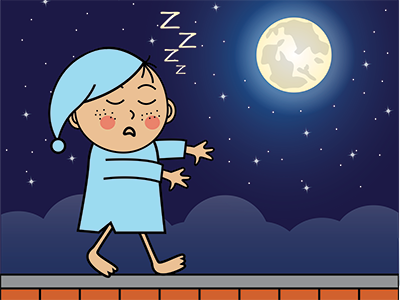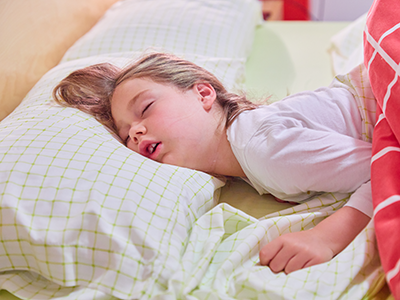How much sleep does my child need?
This is a common question parents ask themselves and their pediatricians. Unfortunately, sleep is not a peaceful topic for parents at times. There’s no question that we worry when we see our kids having difficulty falling asleep or staying asleep. What makes this even harder for parents is that children’s sleep patterns change as they age from infancy through adolescence. There are several more questions parents commonly ask regarding their child’s sleep, including “is it okay that my baby wakes in the night,” “is my teenager getting enough hours of sleep,” and “should I be worried about my child?”
Although getting enough sleep is an important part of a child’s health and well-being, there are times to worry and times to be reassured. It’s important to remember that a “normal” amount of sleep varies from child to child. That being said, let’s start with some basics. The following chart is courtesy of the National Sleep Foundation and gives an estimate of recommended sleep hours by age.
| Age |
Recommended |
May be appropriate |
Not recommended |
| Newborns (0-3 months) |
14-17 hours |
11-13 or 18-19 hours |
Less than 11 or more than 19 hours |
| Infants (4-11 months) |
12-15 hours |
10-11 or 16-18 hours |
Less than 10 or more than 18 hours |
| Toddlers (1-2 years) |
11-14 hours |
9-10 or 15-16 hours |
Less than 9 or more than 16 hours |
| Preschoolers (3-5 years) |
10-13 hours |
9-8 or 14 hours |
Less than 8 or more than 14 hours |
| School-aged (6-13 years) |
9-11 hours |
7-8 or 12 hours |
Less than 7 or more than 12 hours |
| Teenagers (14-17 years) |
8-10 hours |
7 or 11 hours |
Less than 7 or more than 11 hours |
| Young adults (18-25 years) |
7-9 hours |
6 or 10-11 hours |
Less than 6 or more than 11 hours |
As the chart shows, the hours range because every child is different. So, what are some symptoms of a child who is fatigued or exhausted? A baby or toddler primarily exhibits fatigue through fussiness and crying. A school-aged child who is lacking sleep, however, often acts “wound up” or hyperactive. They may become increasingly over-active and resistant as the evening goes on, due to exhaustion. They may have less emotional reserve and behaviors may be harder than usual to manage.
While the number of sleep hours does matter, what is even more important is how well-rested a child appears or behaves. It’s important to talk to your pediatrician if you suspect your child is showing signs of sleep deprivation. Although sleep disorders, such as sleep apnea, should be considered in children showing signs of fatigue, in many cases, focusing on changing the habits surrounding your child’s bedtime routine can make a big impact. Work towards establishing an early bedtime with a consistent, soothing, wind-down routine, including an avoidance of screen time before bed.
 https://riseandshine.childrensnational.org/wp-content/uploads/2023/03/teen-sleeping-with-computer-feature.png
300
400
Rise and Shine
https://riseandshine.childrensnational.org/wp-content/uploads/2017/11/childrens_riseandshine_logo.jpg
Rise and Shine2023-03-09 15:18:342023-03-09 15:25:03Help! My teen’s sleep schedule is off
https://riseandshine.childrensnational.org/wp-content/uploads/2023/03/teen-sleeping-with-computer-feature.png
300
400
Rise and Shine
https://riseandshine.childrensnational.org/wp-content/uploads/2017/11/childrens_riseandshine_logo.jpg
Rise and Shine2023-03-09 15:18:342023-03-09 15:25:03Help! My teen’s sleep schedule is off





Leave a Comment
Want to join the discussion?Feel free to contribute!